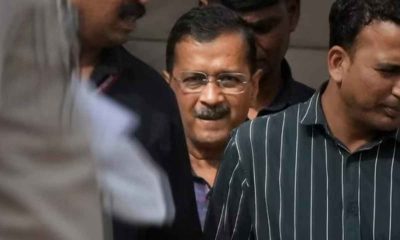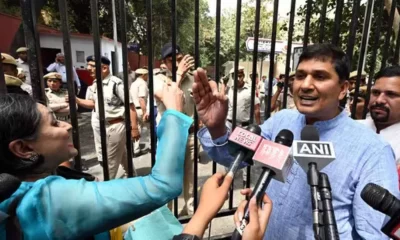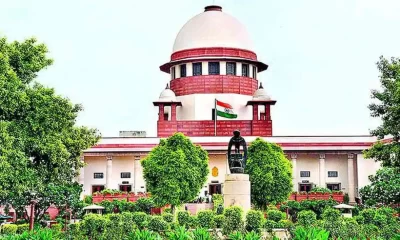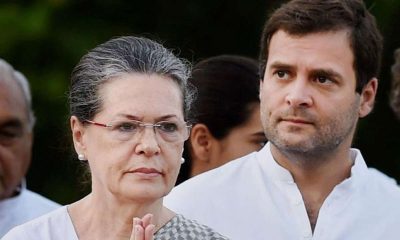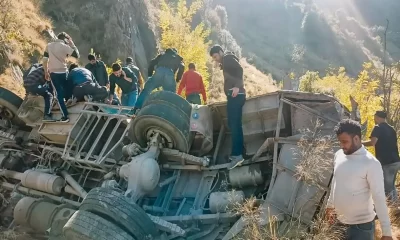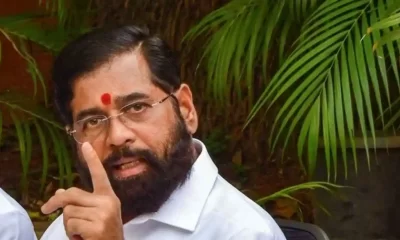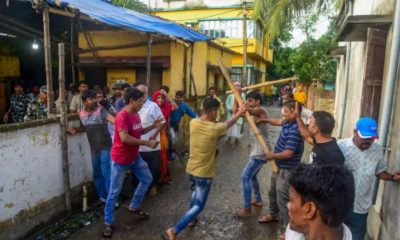India News
J&K: Supreme Court fixes Nov 14 for hearing petitions challenging Centre’s order as latter sits on reply
Supreme Court fixed November 14 to commence hearing petitions challenging the Constitutional validity Centre’s decision revoking the special status for Jammu and Kashmir.
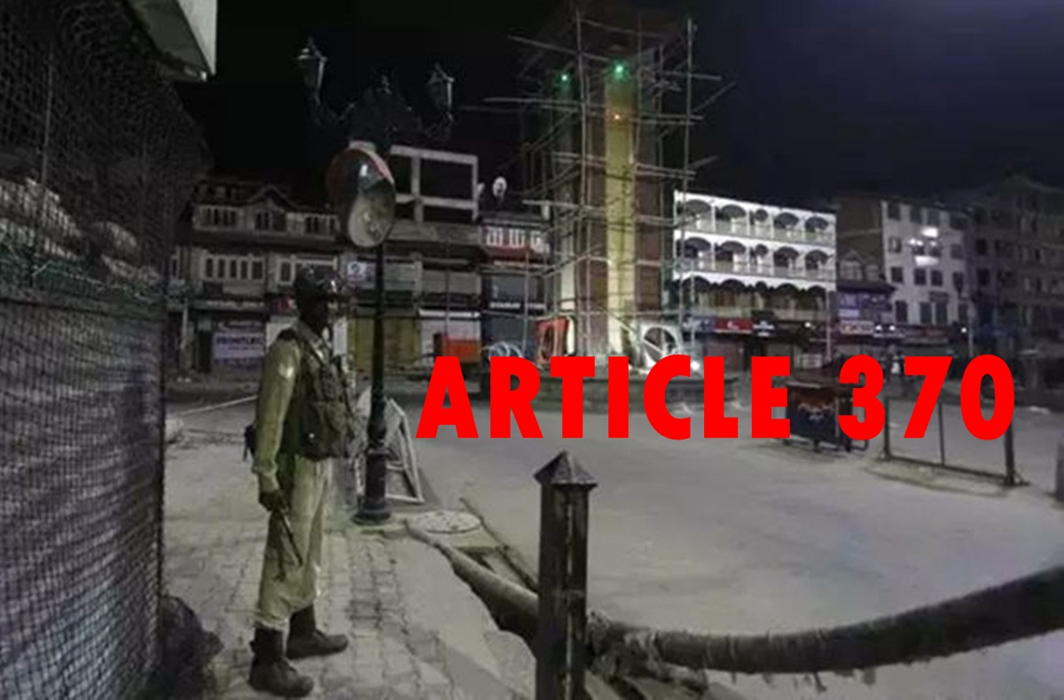
In what is certain to attract stinging criticism, the Centre choosing not to file any counter-affidavits so far to petitions challenging its decisions in Jammu and Kashmir became a ground for the Supreme Court to postpone the much awaited hearing by another month and half.
The Supreme Court today – Tuesday, Oct 1 – fixed Nov 14 to commence hearing a batch of petitions challenging the Constitutional validity of the amendment to Article 370 revoking the special status for Jammu and Kashmir.
The five-judge Constitution bench – the ‘Kashmir bench – headed by Justice NV Ramana and also comprising Justices Sanjay Kishan Kaul, R Subhash Reddy, Bhushan Gavai and Surya Kant also put an embargo on fresh petitions challenging the government’s decision.
The court refused the plea of petitioners that not more than two weeks be given to the Centre and J&K administration for filing counter-affidavits. It allowed Centre four weeks time to file counter-affidavits to the cases, and one week time for the petitioner to file a rejoinder.
The top court which is already seized of multiple petitions in the matter said it will not entertain any more petitions.
“We have to allow the Centre and the J&K administration to file counter-affidavit otherwise we can’t decide the matter,” the bench said.
On Monday, a bench headed by Chief Justice of India Ranjan Gogoi transferred all petitions pending before it to the Constitution Bench headed by Justice NV Ramana. It was decided over a month ago, on August 28, to refer them to a larger bench.
The bench was constituted especially to hear matters related to Article 370 starting today.
Several pleas have been filed in the top court challenging the Centre’s August 5 decision abrogating provisions of Article 370 and bifurcating the state into Union Territories of Jammu & Kashmir and Ladakh. The UTs will come into being on October 31.
The Presidential Order, according to the petitioners, used “a temporary situation meant to hold the field until the return of the elected government, to accomplish a fundamental, permanent, and irreversible alteration of the status of the State of Jammu and Kashmir without the concurrence, consultation or recommendation of the people of that State, acting through their elected representatives”.
This, they said, amounted to an “overnight abrogation of the democratic rights and freedoms guaranteed to the people of the State… upon its accession”.
As decided by the CJI headed bench on Monday, the petitions challenging govt order changing J&K’s status would be heard by the Kashmir bench, while others relating to human rights etc due to lockdown were referred to a three-judge bench.
The petitions
The first petition in the apex court challenging the presidential order on Article 370 was filed by advocate ML Sharma on August 6.
Several others followed. These include pleas by Anuradha Bhasin, executive editor of Kashmir Times newspaper; the habeas corpus petition by CPI(M) general secretary Sitaram Yechury questioning detention of party colleague Yusuf Tarigami; and Congress leader Ghulam Nabi Azad seeking permission to travel to J&K.
The National Conference (NC), the Sajjad Lone-led J&K Peoples Conference and CPI(M) leader Mohd Yousuf Tarigami also filed pleas in this regard in the top court.
The petition on behalf of NC was filed by Lok Sabha MPs Mohammad Akbar Lone and Justice (retd) Hasnain Masoodi. Lone is a former speaker of the J&K Assembly and Masoodi is a retired judge of the Jammu and Kashmir High Court.
In 2015, Justice (retd) Masoodi had ruled that Article 370 was a permanent feature of the Constitution.
Other pleas include the one filed by a group of former defence officers and bureaucrats. They have also sought directions declaring the presidential orders of August 5 “unconstitutional, void and inoperative”. The plea was filed by professor Radha Kumar, a former member of the Home Ministry’s Group of Interlocutors for Jammu and Kashmir (2010-11), former IAS officer of J&K cadre Hindal Haidar Tyabji, Air Vice Marshal (retd) Kapil Kak, Major General (retd) Ashok Kumar Mehta, former Punjab-cadre IAS officer Amitabha Pande and former Kerala-cadre IAS officer Gopal Pillai, who retired as the Union home secretary in 2011.
A plea has also been filed by bureaucrat-turned-politician Shah Faesal, along with his party colleague and former Jawaharlal Nehru University Students’ Union (JNUSU) leader Shehla Rashid.
Petitions referred to three-judge bench
During the hearing on Monday, the bench headed by Chief Justice of India Ranjan Gogoi, and also comprising Justices SA Bobde and SA Nazeer, said it has received a report from the Juvenile Justice Committee of the Jammu and Kashmir High Court on the allegations about illegal detention of minors in the Valley.
“The report has come. We will send this matter to the Kashmir bench (a three-judge bench headed by Justice Ramana),” the bench told the lawyer representing petitioners and child right activists Enakshi Ganguly and Shanta Sinha.
It also referred to the three-judge bench a separate plea filed by a doctor who claimed shortage of medical facilities in Kashmir due to the restrictions imposed there and also about restoration of internet facilities in the hospitals there.
The bench said that petition filed by Executive Editor of Kashmir Times Anuradha Bhasin, who has raised the issue of restrictions imposed on working of journalists in Kashmir following the abrogation of provisions of Article 370, would be heard by the three-judge bench.
It also referred the separate petitions, including those filed by CPI(M) general secretary Sitaram Yechury and senior Congress leader Ghulam Nabi Azad, to the three-judge bench.
While Yechury has filed a petition seeking permission to visit his party colleague Yousuf Tarigami in Kashmir, Azad has moved the top court in his personal capacity seeking its nod to visit his family members and relatives in Kashmir.
The apex court had earlier allowed Yechury to visit Kashmir to meet Tarigami while Azad was also permitted to visit four districts — Srinagar, Jammu, Baramulla, Anantnag — to meet people.
Petitions before the Constitution bench
Other pleas, which would be taken up for hearing by the Constitution bench, include the plea by advocate ML Sharma.
Another is one filed by a group of former defence officers and bureaucrats who have sought direction to declare the Presidential orders of August 5 “unconstitutional, void and inoperative”.
The plea was filed by professor Radha Kumar, a former member of the Home Ministry’s Group of Interlocutors for Jammu and Kashmir (2010-11), former IAS officer of J&K cadre Hindal Haidar Tyabji, Air Vice Marshal (retd) Kapil Kak, Major General (retd) Ashok Kumar Mehta, former Punjab-cadre IAS officer Amitabha Pande and former Kerala-cadre IAS officer Gopal Pillai, who retired as the Union home secretary in 2011.
The NC leaders have submitted that the Presidential Orders paved the way for application of entire provisions of the Constitution in Jammu and Kashmir and also have the effect of nullifying Article 35A and completely abrogating Article 370.
They have contended that the Presidential Orders and the new legislation unconstitutionally undermine the scheme of Article 370.
Centre’s delay in filing counter-affidavits
While the Centre’s move came on Aug 5 and it is two months since the lockdown and communication blockade was imposed in Jammu and Kashmir, the Centre is yet to file its counter-affidavits in the bunch of petitions filed in the Supreme Court questioning its actions.
The first of these petitions was filed on Aug 6, the day after the Centre’s move.
The government’s measures – which were termed a ‘collective punishment on people’ by the United Nations Human rights body – have impacted the civil liberties of the people of J&K. It is unusual for such a long time to lapse before matters relating to constitutionally guaranteed rights are addressed.
Unfortunately, even after several weeks, no such explanation is forthcoming from the government.
2024 Lok Sabha Elections
Kamal Haasan, Rajinikanth, Vijay Sethupathi, Dhanush vote in Chennai
Superstar Rajinikanth was accompanied by his publicist and his team at the polling both. He greeted everyone and flashed his inked finger for the media.
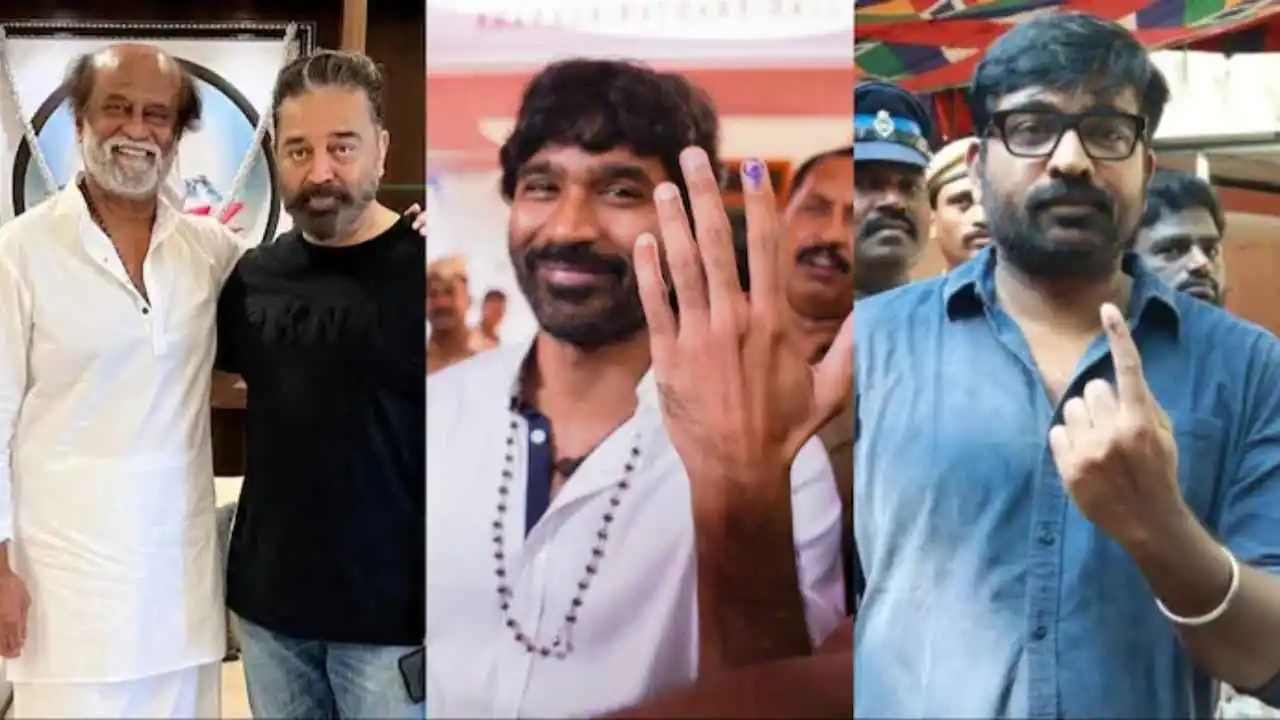
Superstar Rajinikanth and Kamal Haasan cast their votes at their respective polling booths in Chennai on Friday. Actor Dhanush cast his vote at the St Francis Xavier School, TTK Road. Vijay Sethupathi exercised his duty at the Chennai High School in Kilpauk.
Voting for the Lok Sabha Elections 2024 started on Friday. The people of Tamil Nadu will go for voting in the first phase of the elections today. Rajinikanth was accompanied by his publicist and his team at the polling both. He greeted everyone and flashed his inked finger for the media.
A video shows superstar Rajinikanth arriving at his booth and exercising his duty is circulating on social media. He was mobbed by fans while exiting the polling booth. Actor Kamal Haasan, and Makkal Needhi Maiam president, arrived at his election booth to cast his vote. Actor Dhanush cast his vote at the St Francis Xavier School in TTK Road at around 8 am. Vijay Sethupathi cast his vote at the Chennai High School in Kilpauk.
According to reports Ajith Kumar was one of the first actors to cast his vote in Chennai. Social media user Ramesh Bala took to X and shared a video of the actor at the polling station. The actor was seen voting in Thiruvanmiyur early on Friday. Ajith, Rajinikanth and Sivakarthikeyan spoke to the press after voting and urged people to come out and exercise their duty.
Superstar Rajinikanth will be seen next in director TJ Gnanavel’s Vettaiyan. The film features an ensemble cast including Rana Daggubati, Fahadh Faasil, Amitabh Bachchan, Manju Warrier, and Dushara Vijayan, Ritika Singh in pivotal roles. Upcoming projects of Dhanush include Raayan, Kubera and Nilavukku En Mel Ennadi Kobam. Ajith was last seen in the 2023 film Thunivu. He is currently shooting for Vidaa Muyarchi, which is helmed by Magizh Thirumeni and also stars Trisha, Arjun Sarja, Regina Cassandra and Arav in important roles.
2024 Lok Sabha Elections
Lok Sabha elections 2024: Google Doodle marks the start of polls with index finger voting symbol
Google released a doodle today, to mark the begining of Lok Sabha Elections 2024 in India.
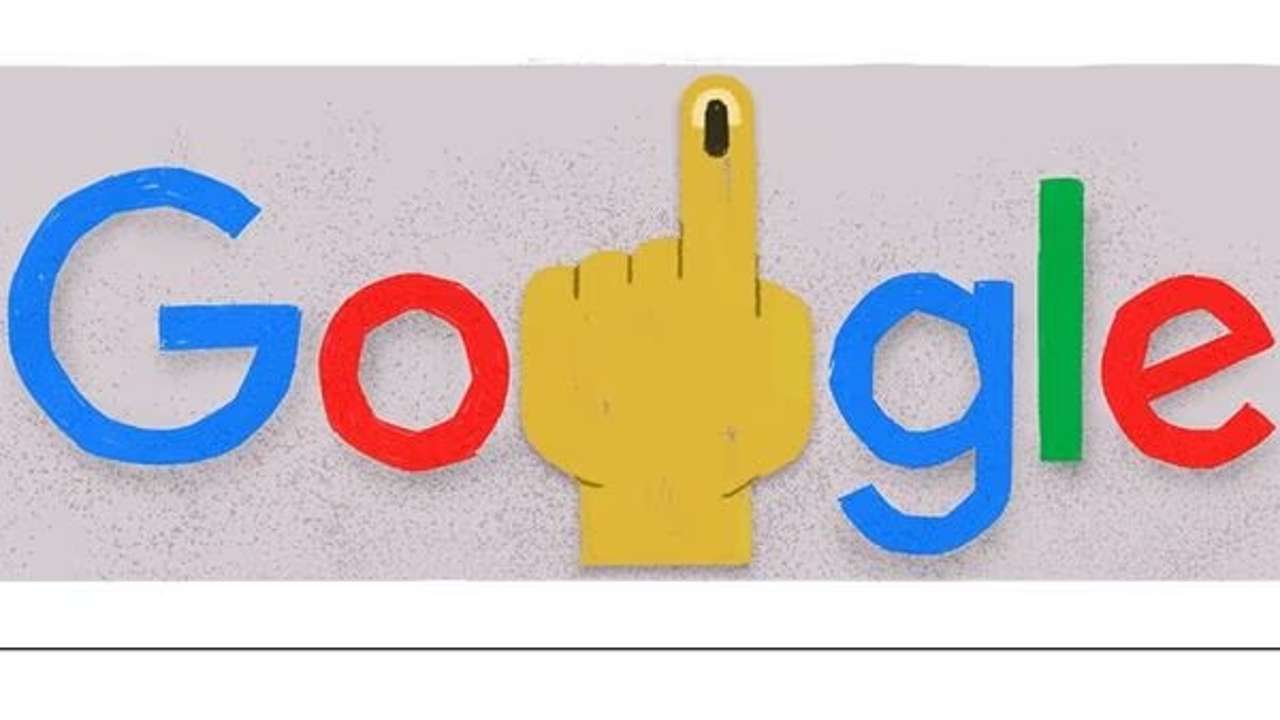
Google unveiled a doodle today, with an inked index finger to commemorate the start of the voting for Indian Lok Sabha elections 2024. This symbolic image represents the country’s ongoing voting process as the general election’s first phase gets under way.
The nationwide availability of this doodle will encourage voters in different states to visit polling booths to cast their votes.
Google Doodles are quick, temporary updates to the Google logo that reflect various national and international topics, such as holidays, significant occasions, and influential people who have had a significant impact on society.
Users can engage in a range of engaging experiences with these Doodles because they are presented in a variety of formats, including photos, animations, slideshows, videos, and interactive games.
Meanwhile, the BJP-led NDA and the INDIA alliance are expected to engage in a fierce contest in this year. 102 constituencies are being covered by elections being held in 17 states and 4 Union Territories (UTs) during 1st phase of election. Over 16.63 crore eligible voters will have 1.87 lakh polling places set up for the first phase of voting. There are 8.4 crore men, 8.23 crore women, and 11,371 voters of a third gender among the eligible voters.
A total of 1625 candidates from various parties will contest in the first phase of elections. Nitin Gadkari, K Annamalai, Jitin Prasada, Jitan Ram Manjhi, Nakul Nath, Gaurav Gogoi, Imran Masood, Karti Chidambaram, Tamilisai Soundararajan, and Dayanidhi Maran are among the important candidates whose fates would be decided today.
The Election Commission of India (ECI) has announced that polling will take place from 7:00 am to 6:00 pm. The results of the voting will pe announced on June 4, as per ECI.
Today, April 19, a number of states, including the Andaman and Nicobar Islands, Sikkim, Tamil Nadu, Puducherry, Uttarakhand, Meghalaya, Mizoram, Nagaland, and portions of Maharashtra, Madhya Pradesh, Uttar Pradesh, Jammu and Kashmir, Tripura, Rajasthan, Chhattisgarh, Manipur, Assam, and Bihar, will hold their first phase of elections.
Voting in Phase 2 is slated to take place on April 26. Phase 3 will take place on May 7, Phase 4 on May 13, Phase 5 on May 20, Phase 6 on May 25, and Phase 7 on June 1.
2024 Lok Sabha Elections
Prime Minister Narendra Modi urges citizens to vote in record numbers as voting for first phase of Lok Sabha elections begins on 102 seats across India
Union Home Minister Amit Shah also urged citizens to vote in large numbers and added that it is not only meant to determine the fate of a Lok Sabha or a candidate but also for shaping a bright future for the country.
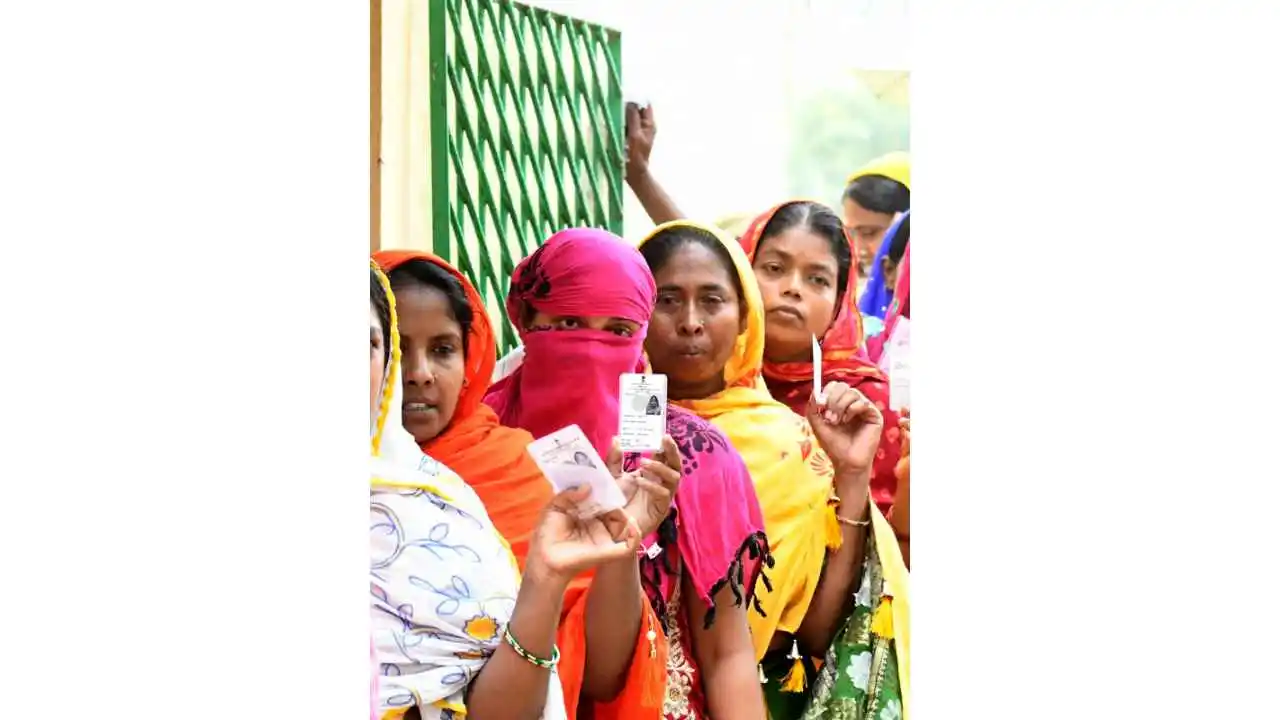
Voting for the first phase of Lok Sabha elections is taking place on 102 seats spread all over India. Prime Minister Narendra Modi took to X and urged citizens to vote in record numbers. He said he particularly called upon the young and first time voters to vote in large numbers. He added that every vote counts and every voice matters.
Congress leader P Chidambaram and RSS supremo Mohan Bhagwat cast their votes in Chennai and Nagpur, respectively. Chidambaram was confident that INDIA bloc will sweep all 39 seats in Tamil Nadu. Union Home Minister Amit Shah also urged citizens to vote in large numbers and added that it is not only meant to determine the fate of a Lok Sabha or a candidate but also for shaping a bright future for the country.
He appealed to all the voters who are voting in this phase to vote in large numbers because every vote of theirs has the power to create a secure, developed, and self-reliant India. He appealed to the people to choose a strong and decisive leadership that has shown the determination to free the country from corruption, nepotism, and appeasement while fulfilling its promises.
In the first phase, elections are being held on all seats in Uttarakhand (5), Tamil Nadu (39), Meghalaya (2), Arunachal Pradesh (2), Mizoram (1), Puducherry (1), Nagaland (1), Andaman and Nicobar Islands (1) and Lakshadweep (1), Sikkim (1). Besides, there is voting in 8 seats in Uttar Pradesh, and Maharashtra, 6 seats in Madhya Pradesh, 12 seats in Rajasthan, 4 in Bihar, 2 in Manipur, 3 in West Bengal, and 1 seat each in Jammu and Kashmir, Tripura, and Chhattisgarh. Assembly elections are also taking place on 60 seats in Arunachal Pradesh and 32 seats in Sikkim.
-
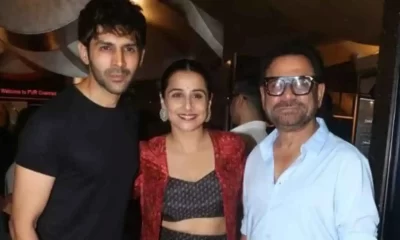
 Entertainment21 hours ago
Entertainment21 hours agoBollywood stars Vidya Balan, Kartik Aaryan, Pratik Gandhi, Ileana D’Cruz, Mouni Roy, Radhika Madan, Mrunal Thakur attend Do Aur Do Pyaar premiere
-
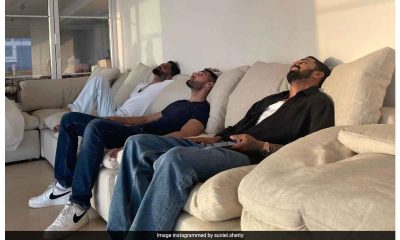
 Cricket news19 hours ago
Cricket news19 hours agoHappy Birthday KL Rahul: Suniel Shetty wishes son-in-law KL Rahul on his 32nd birthday
-
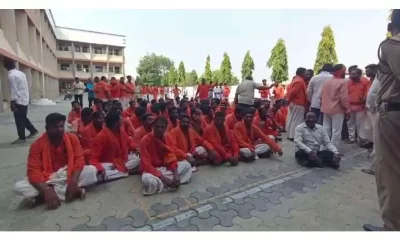
 India News22 hours ago
India News22 hours agoReligious outfit vandalises The Blessed Mother Teresa High School in Telangana after teachers object to students wearing Hanuman Deeksha dress
-
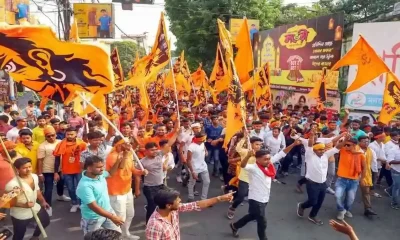
 India News24 hours ago
India News24 hours agoClashes erupt during Ram Navami procession in West Bengal’s Murshidabad district
-
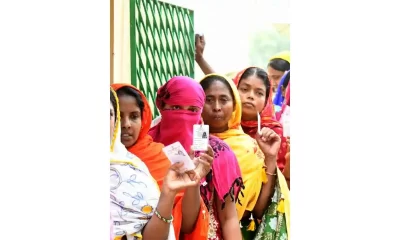
 2024 Lok Sabha Elections2 hours ago
2024 Lok Sabha Elections2 hours agoPrime Minister Narendra Modi urges citizens to vote in record numbers as voting for first phase of Lok Sabha elections begins on 102 seats across India
-
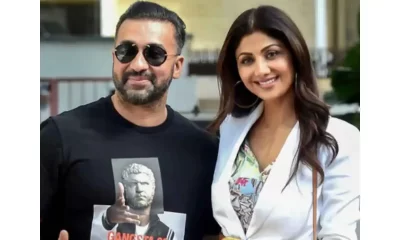
 India News18 hours ago
India News18 hours agoEnforcement Directorate seizes Shilpa Shetty’s husband Raj Kundra’s properties worth Rs 97 crore
-
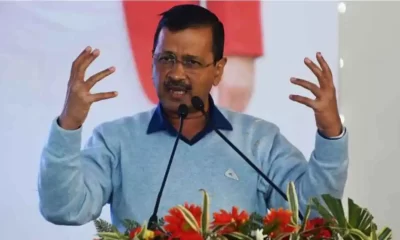
 India News17 hours ago
India News17 hours agoEnforcement Directorate says Arvind Kejriwal is deliberately eating mangoes, sweets, taking sugar with tea to increase his blood sugar level and create ground for bail
-
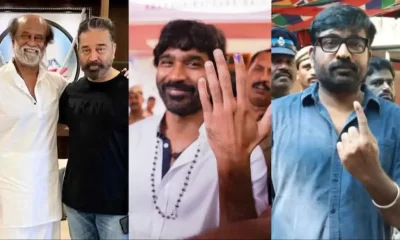
 2024 Lok Sabha Elections23 mins ago
2024 Lok Sabha Elections23 mins agoKamal Haasan, Rajinikanth, Vijay Sethupathi, Dhanush vote in Chennai

